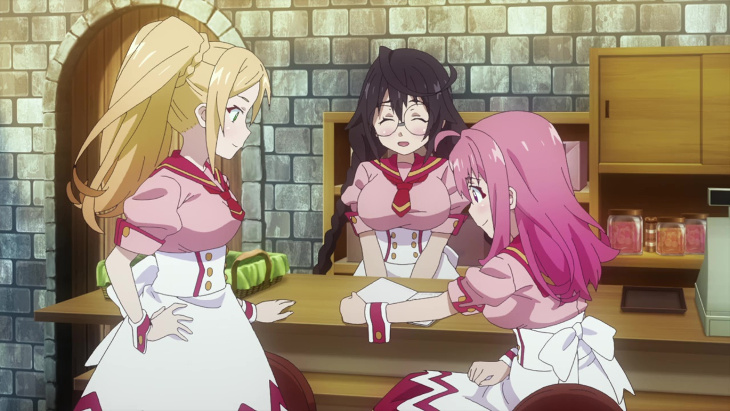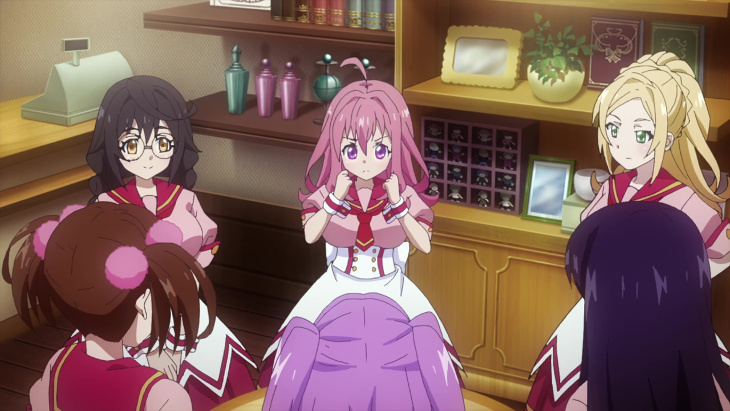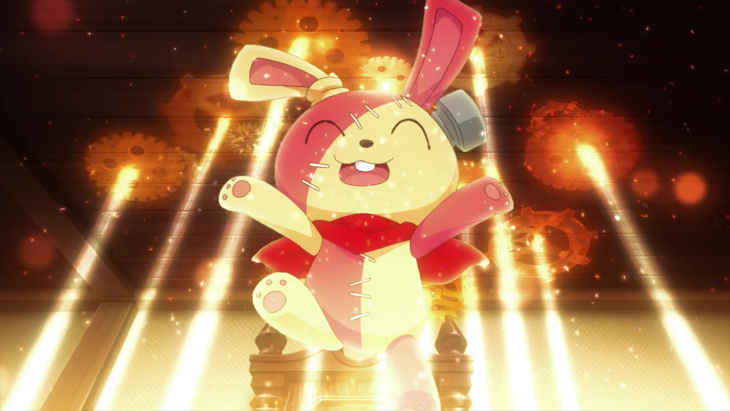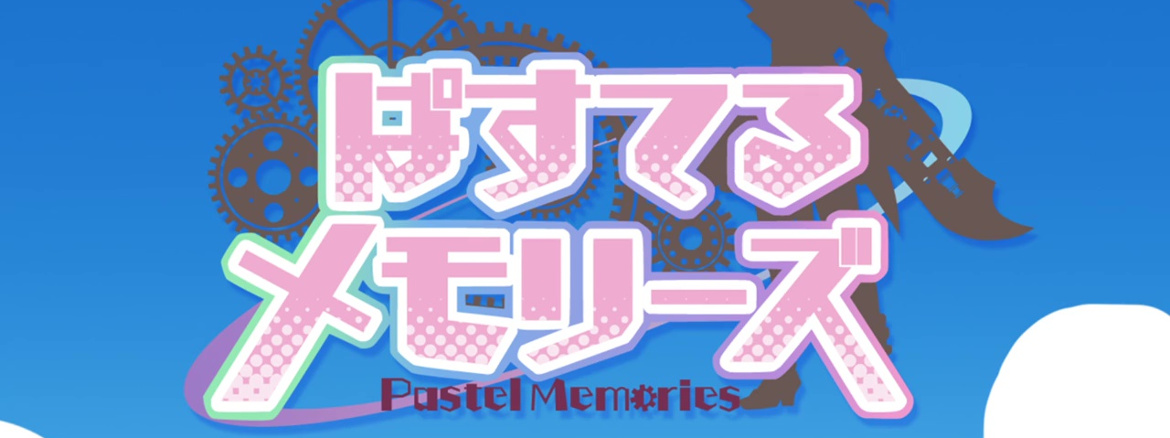
“We just can’t find manga, anime and games like we used to, but I feel that people have changed too, just like this town…”
Anime has a tendency to place the neighborhood of Akihabara on a rather peculiar pedestal, and I struggle to think of a comparable example of this treatment in western media. For otaku culture, Akihabara serves as something of a cultural mecca due to its many shops and maid cafes. This is pretty common knowledge for fans of anime, but I feel these aspects should be rehashed a bit prior to a discussion of Pastel Memories as the series would appear to be a peculiar love letter to both Akihabara and otaku culture as a whole. The degree to how much this clicks with viewers will depend on how much they can relate to Akihabara’s significance to various fanbases, but, even if you find the show’s lofty appraisals of the neighborhood to be silly, Pastel Memories can be enjoyed as a simple lighthearted romp. This is fortunate because, if I’m being frank, I found the show’s attempts to commend a commercial district laughable.

Pastel Memories starts off by clearly displaying that there is a supernatural aspect of the show only to spend the next 20 minutes ignoring that fact. It’s an odd, but reasonably effective strategy as it allows the episode to entertain the standard “cute girls doing cute things” approach without losing its grip on the viewers that enjoy a more substantive plot. The opening displays a dark fog sweeping through the neighborhood stripping it of the distinctive cafes and storefronts that have made Akihabara so iconic. The show follows the waitresses at the Rabbit Shed Shop in a version of Akihabara that has become less of an iconic locale for the anime and gaming communities as the number of shops catering to those groups has diminished sharply. Based upon a note left in a guest book, the girls spend the majority of the episode attempting to track down a series of manga volumes for one of their customers. There are a total of nine girls featured in this episode, but they’re gradually introduced in groups of 3 to avoid overloading the viewer. I’d be lying if I said they all made an impact, but the show isn’t in a rush to fully introduce them all. However, the sudden left turn comes when, in the final minutes of the episode, three more waitresses enter into the cafe through a magical portal with a cute magical rabbit in tow and no one bats an eye at this. Evidently, the staff of this shop also goes to fight “viruses” that degrade otaku fandoms in the area. Pastel Memories takes an odd approach to handling this narrative, but I enjoyed it nonetheless.

The production side of things is a bit basic, but, again, not unpleasant. The studio behind this is Project No.9, who have largely stayed off my radar up until this point. Pastel Memories evidently started off as a mobile game, but, despite a few wonky qualities including the scale of its cast, it flows more smoothly than I would have expected from such an adaptation. The character models are all relatively basic, but not unpolished and this simplicity has the added benefit of keeping each of the girls visually distinct despite a shared uniform. When you tally up the cast, we’re actually dealing with 12 separate girls, which runs the risk of being overwhelming. If I were to stick with this series, that would be one of the pitfalls to keep an eye out for. I alluded to it earlier, but the biggest misstep for me was the show’s attempts to wax poetic about Akihabara. I’ve never been the type of anime fan who’s particularly interested in merchandise, so, even if I were to visit the area, I doubt I’d be able to develop a legitimate appreciation for what the neighborhood represents to others. Listening to a bunch of girls opine about the importance of Akihabara is sort of like listening to a bunch of people declare the local strip mall to be a national treasure. It comes across as cloying and out of touch. Still, when the discussion is this silly and lighthearted, I can generally let that slide.
Before I wrap up, a few Notes and Nitpicks:
- I wonder if the magical rabbit thing is the owner of the cafe. The girls allude to the owner a few times, but they’re never named or shown.
- There were a few shots and camera angles which I would consider fan service, but, if that was the intent, it wasn’t done that competently. Either way, I didn’t find those moments too obtrusive, but they were there.
- I wonder if I’m going to have problems confusing this series with Plastic Memories.
- Based on what I saw of the Ingress anime, this is the far superior title.




Add comment